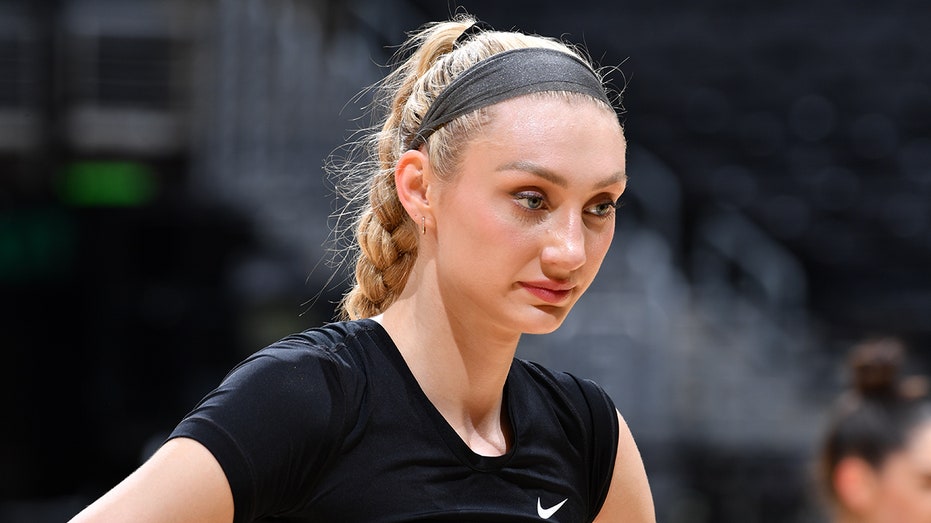
Cameron Brink’s Strong Reaction to Male Practice Squad Invitations
Last week, a social media post shared by the Los Angeles Sparks ignited a conversation about gender roles and inclusivity in sports. The post encouraged male athletes to fill out a registration form for possible involvement with the WNBA team as practice squad players. This move aims to bolster training sessions but has faced backlash, particularly from star player Cameron Brink.
What Sparked the Controversy?
In a recent interview, Brink candidly expressed her feelings about the Sparks’ initiative. She described the idea of male athletes practicing alongside the team as making her feel ‘icked out.’ This remark struck a chord, highlighting the ongoing debate around the structure of professional sports.
Brink’s reaction was not rooted in the athletes’ capabilities but stemmed from a profound concern regarding the implications of such a decision. She emphasized the importance of maintaining a safe, competitive environment for female athletes. As a key player for the Sparks, Brink’s social media presence and opinions resonate strongly with fans and the wider community.
The Role of Inclusivity in Sports
The conversation surrounding gender dynamics in sports has evolved significantly. Many advocate for a more inclusive approach, while others, like Brink, are wary of such changes, particularly in traditionally female leagues like the WNBA. Critics argue that inviting male athletes could undermine the integrity and uniqueness of women’s sports.
- Support for Gender Inclusivity: Proponents of inclusivity suggest that collaboration and training across genders can enhance skills and change perceptions.
- Concerns from Female Athletes: Conversely, many female players, including Brink, worry about the potential risks and the impact on team dynamics.
What Are Other Athletes Saying?
This situation has prompted responses from other athletes across various sports. Many female athletes have voiced their concerns about fairness and competition, emphasizing that practice environments should reflect the leagues’ goals. The Sparks’ decision to invite male players reflects a growing trend towards accepting differing perspectives in the sports domain.
“There needs to be a balance,” said Lisa Smith, a former WNBA player. “We want all athletes to be recognized, but we shouldn’t compromise our essence for experimentations.”
Can Both Perspectives Coexist?
As discussions continue surrounding the future of women’s professional sports, Brink illustrates a pivotal viewpoint. Female athletes must feel valued and respected within their sporting environment. Balancing male athlete participation while preserving the essence of women’s leagues remains a critical topic.
Moving forward, the Sparks must consider various perspectives as they evaluate their training strategies. Should this initiative progress, it will undoubtedly set a precedent for how sports teams approach their inclusivity policies.
The Future of Gender Roles in Sports
As society progresses, the role of gender in sports will likely continue to shift. Discussions like those sparked by Brink’s remarks will lead to more significant inquiries that challenge existing norms. Can women and men train together without compromising the unique attributes of female sports?
In the coming weeks, the Sparks will face pressing questions as both their roster and practices evolve. Greater clarity on the vision for inclusivity will be essential for maintaining fan support while ensuring players feel secure in their roles.
The conversation may just be beginning, but it has already stirred significant emotions within the community. Only time will tell how teams navigate these complex, evolving dynamics in the sports world.
Reference: [Source: Fox News]
